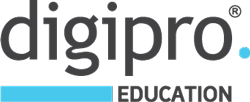Developing “Polymath Minds” with Tinkering, Computational Thinking, and Robotics
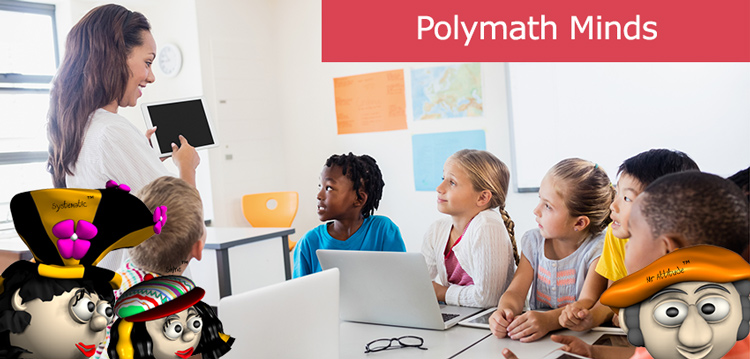
Instructor
-
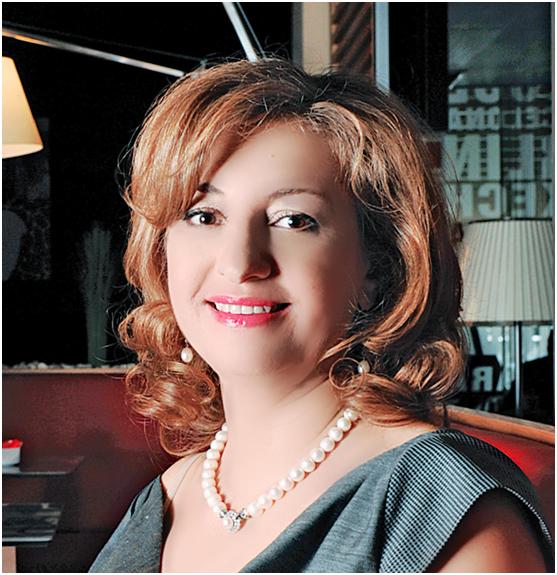 Chryso ChristodoulouCEO - Founder
Chryso ChristodoulouCEO - FounderMrs. Chryso Christodoulou is the founder of FUNecole® Research Institute and the co-founder of Digipro Education Limited. Her academic background is in Computer Science and Education. She is the designer and author of the FUNecole® for Cambridge ICT Starters Initial Steps endorsed by University of Cambridge International Examinations and recognized best practice educational approach by the European Commission. Mrs. Christodoulou is an external educational expert for the Institute of Prospective Technological Studies (IPTS) on various educational research projects. She is a program committee member for the Institute of Electrical and Electronics Engineers’ (IEEE) Computer society. Mrs. Christodoulou participates as keynote speaker and panelist at numerous conferences, seminars and workshops around the world. Mrs. Christodoulou´s work has been published in scholarly and policy publications, such as IEEE Xplore and the European Parliament Magazine. She is a recognized as an entrepreneurship expert by OECD and is one of 350 European Ambassadors of Entrepreneurship.
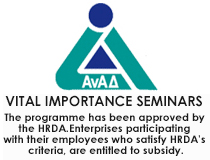
Recent Participants
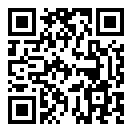
Date
- May 06 - 07 2019
- Expired!
Cost
- Fully Subsidized
Location
The programme includes:
- Two full-days seminar at a luxurious venue.
- Half a day consulting session for each participating company.
- An extensive report for each participating company formulated to their needs. The report will include recommendations and suggestions for further consideration by the management.
- Full access to a seminar blog containing all presentations and further additional support materials and resources for each seminar participant.
- Full lunch and three coffee breaks for the two-days seminar for each seminar participant.
- No VAT is imposed to Digipro Executive Management Seminars. Please contact us for clarifications.
The University of Oxford forecasts that in the next 20 years as many as 47 percent of jobs around the globe will become completely automated. Meanwhile, predictions on the number of connected devices that will be in use by 2020 as part of the Internet of Things vary from 20 billion to 75 billion.
Because of this proliferation of Computers, Apps and Robotics, there’s a growing anxiety about the increasing role of artificial intelligence and computers, in particular, whether machines will make workers obsolete. Understanding what computers can and can’t do is fundamental in addressing these anxieties. Schools and teachers from all disciplines need to teach students how to remodel the technological world around them, we can help them become creators rather than just consumers of technology.
Furthermore, today’s students need to learn, invent, teach others, collaborate, and share their knowledge when it best suits their personal needs, interests and style.
Classrooms need to become places of great joy, creativity, and collaboration that lead students to transform from passive consumers to active creators and inventors.
Teachers need to combine multiple disciplines, enhance learning and prepare students for diverse pathways that prepare them for unforeseen career paths.
Schools need to actively involve student participation by offering multidisciplinary learning experiences and create polymaths…
The real world commands that these “Polymath” versatile, flexible, highly innovative creative minds will be ready to change professions at least 3 times during their lifetime. (Think Tank on Global Education Harvard 2016)
As school instruction still separates disciplines, schools need to offer STREAMS (Science, Technology, Reading, Engineering Arts, Mathematics and Social Sciences) transdisciplinary experiences. These experiences need to engage and stimulate students in getting actively involved in active learning. During this process, students need to take control of their own learning and take the lead. Only innovative learning experiences inspire students’ imagination and participating and involvement during class instruction.
At the moment, national curricula are advocating that students need to be exposed to computer science, coding, (“Learn to Code Before You Learn to Read”), computational thinking and robotics from kindergarten to 12th grade! The educator community and schools need to simply inspire students to imagine and take control of their own destiny with enthusiasm and confidence.
This seminar is aspirational inspirational and practical as it offers school leaders, educational consultants and curriculum coordinators values, tools and activities that enrich and accelerate the learning process.
This seminar will offer valuable insight to school principals/managers, educational curriculum consultants and master trainers of private High School and Lyceums, as well all other private educational Institutions approved by Ministry of Education and Culture. All schools need to transform and develop their educational practices further, integrating Computational Thinking, Tinkering and Robotics across all disciplines.
This expert educator professional development workshop aims to provide school principals/managers, educational curriculum consultants and master trainers of private High School and Lyceums with the latest state of the art tools, platforms and educational pedagogies that will fully support them to acquire the following types of knowledge, skills and attitude-related objectives:
Knowledge-related objectives
- Understand the remixing |reusing theory as a powerful methodology and classroom instruction for engaging students to excel.
- Comprehend the effects of the global competitiveness in teaching and learning
- Realize that today’s students need to become polymath minds if they want to connect, compete and excel on a global market scale.
- Review full demos of Curricula for NXT, TETRIX of Hummingbird Robotics and Platforms so that to understand how to best integrate them in the learning plans and instruction.
Skills-related objectives (Be able to)
- Integrate Science, Technology, Reading/Writing, Engineering, Arts, Mathematics and Social/Emotional learning to improve student understanding and adequately prepare them in STEM-related jobs and carriers.
- Use Tinkering and computational thinking to solve scientific, engineering as well as social problems and challenges.
- Use programming languages and Robotics in broad and diverse range of disciplines.
- Use creative coding through games and apps to well-prepared students for life and future careers.
Attitude-related objectives
- Inspire students to develop powerful ideas empower self-reflection, clarify their thinking and connect them to solve real-world problems.
- Integrate the use of state of the art resources and tools available such as ROBOTC® for MINDSTORMS with the NXT and TETRIX platforms and Hummingbird Robotics.
In-house seminar objectives:
Ideas, pedagogical methods, tools and recourses demonstrated during the two workshop days will be used to assist with the individual progress of participating schools and workshop participants. In-house training by workshop Instructor will focus on discussing in more detail how tinkering computational thinking can be used to inspire and engage students to pursue aspirations, investigate problems, design solutions and chase curiosities. Therefore, workshop participants will be able to:
- Set processes for continuous improvement of class instruction and school change.
- Transform existing classroom practices to facilitate self-directed, dynamic learning.
- Create performances for meaningful and well-balanced personalities.
- Define ways to measure and evaluate learning outcomes.
- Set policies to accommodate all student needs and curriculum requirements.
DAY One
07:00 – 07:30 / Arrival & Registration
07:30 – 08:00 / Introduction and Overview of the Seminar’s Objectives
08:00 – 09:30 / Connecting the Disconnected: Schools and the Increasingly Innovative World
- Innovation eliminates traditional-structured-routine jobs
- The global need for creative problem solvers
- How schools kill creativity
- Fostering and nurturing creativity
Empowered by Tinkering: Learning by Doing
Tinkering is an ethos used by thousands of educators provide students opportunities to design, invent, innovate and make. As students tinker with materials, they are constantly putting things together and taking them apart. They are learning through play—trying out new ideas, exploring alternate paths, making adjustments, imagining new possibilities, expressing themselves creatively. In the process, they learn about the creative process and develop as creative tinkering.
- How students really learn?
- Which computational and programming concepts should be introduced?
- What games and exercises enhance teaching concepts in fun, authentic and creative ways?
- How programming ideas, programming languages and robotics support concrete ways of thinking?
09:30 – 09:45 / Coffee break with biscuits and snacks
09:45 – 11:45 / Introducing Key Programming Concepts to All Educators that are even Non Computer Specialists
- Introduce the fundamentals of programming and computational thinking
- Instil confidence in working with technology
- Use computational thinking in broad and diverse range of disciplines
- Engage student understanding through working on projects, both unplugged and on a computer, using the Scratch programming language
- Develop ideas for using object-oriented programming in the classroom
- Introduce the “Internet of Things”
- How Arduino adventures foster creativity and collaboration.
Case study: Creative Coding Through Games and Apps
Creative coding through games and apps sets students of early secondary to higher grades on a journey to become well prepared for life and careers in the contemporary world. At the core of the learning experience in creative coding are the beliefs that students invest when they can be creative, learn best by doing, and that social engagement can be a powerful accelerant to learning. These beliefs are brought to life by using leading-edge technology to create an interactive and immersive learning experience focused on solving real-world problems that are relevant to students’ lives.
11:45 – 12:15 / Lunch break
12:15 – 14:15 / Using Simple Electronics
- Develop knowledge of simple creative electronics
- Set up your Raspberry Pi and write your first program using block-structured programming language
- Developing a new generation of tools, activities, and spaces to support playful investigation and experimentation while integrating digital and physical materials
- Get involved in activities that enable student participation in new types of inquiry into light, sound, motion, and even storytelling
- Demonstrate “light play” examples where students can use program colored lights and moving objects to create dynamic patterns of shadows
14:15 – 14:30 / Coffee break with biscuits and snacks
14:30 – 15:30 / Practical Group Work 1: Making It Happen
Moving from vision to reality by developing initiatives and strategies, teachers from all disciplines and levels can get involved, achieve learning goals and share individual experiences.
DAY Two
7:00 – 7:30 / Arrival
7:30 – 8:00 / Recapitulation of first day
8:00 – 09:30 / From Computational Thinking to Programming and Robotics
1. Learn to Code, Code to Learn.
- The benefits of using the algorithmic process for all disciplines. How students can use mathematical and computational ideas to enhance their understanding and to make connections across disciplines.
- How students can formulate strategies to solve problems, design projects, communicate ideas and collaborate.
- How students can reuse and remix coding projects and any other kinds of projects (from Math, Science, Arts, Music) to innovate and excel. We will present how students use existing solutions to potentially create things much more complex than they could have created on their own.
2. Computational thinking.
- How computation thinking can be used not just for computer scientists but for everyone, regardless of age, background, interests or occupation.
Case study: “Remixing and Reusing” A Pathway for Learning.
Presenting the Scratch Community of projects and the “Remixing” theory that was tested quantitatively using data from more than 2.4 million multimedia programming projects shared by more than 1 million users in the Scratch online community. First, we will be presenting that users who remix more often have larger repertoires of programming commands even after controlling for the numbers of projects and amount of code shared. Second, we will be showing that exposure to computational thinking concepts through remixing is associated with increased likelihood of using those concepts. These results support theories that young people learn through remixing, and have important implications for designers of social computing system.
Remixing has been defined as the reworking and combination of existing creative artifacts, usually in the form of music, video, and other interactive media. The phenomenon is widespread, culturally significant, and controversial as it provokes important questions about ownership and authorship. Questions like what is reasonable to borrow from others? How do you give appropriate credit to others? How do you assess cooperative and collaborative work?
09:30 – 09:45 / Coffee break with biscuits and snacks
09:45 – 11:45 / Robotics: The New Literacy and Powerful Learning Tool Across All Disciplines
Robotics is a great way to get students excited about science, technology, engineering, and math (STEM) and to engage them in complex, strategic problem-solving. It introduces students to concepts and skills that are needed for understanding the intelligent, highly interactive information-based technology of the future.
- Introducing the STEM -> STREAMS approach with LEGO MINDSTORMS® Education Robotics in High Schools
- Using LEGO components, sensors, and NXT module concepts, such as gear ratios, friction, potential energy, kinetic energy, and oscillations
Case Study:
Presenting LEGO-based hands-on activities and how these can address high school standards on mechanic’s concepts, Science and Mathematics and Technology. Furthermore, there will be a demonstration on how to enhance student creativity, logic, and problem-solving skills to meet challenges with today’s technologies.
Introducing the Hummingbird Robots
- How Hummingbird Robots facilitate teaching and enhance creativity
- Using Hummingbird Robots to design models from the real world
- Program with Scratch bulid and control Hummingbird Robots to enhance all kinds of disciplines such as Science, Languages, Arts, Engineering, Technology and Mathematics
11:45 – 12:15 / Lunch break
12:15 – 14:15 / Practical Work 2: Parallel workgroups by participants
Participants use their newly acquired knowledge and skills formulate school transformation action plans and work with web-enabled resources and tools to prepare own recourses and lesson plans.
14:15 – 14:30 / Coffee break with biscuits and snacks
14:30 – 15:30 / Participant Presentations
- Group presentations of sample recourses and lessons.
- Seminar evaluation.
- Conclusions and seminar closure.
The company visit will include a review of the individual plans prepared by the participants during the seminar and an in-depth presentation and brainstorming discussion. Specifically, this discussion will focus on:
- Devising comprehensive school strategies and action plans on how to enable all these transformations to take place in each school
- Implementing tinkering and computational thinking in line with the school strategy and priorities
- Using Robotics across all the curricula and disciplines
- Preparing communication and coordination plans for teachers
- Demonstrating how the new comprehensive approaches in STEM/STREAMS and student-centric practices can inspire students to become creators and owners of knowledge and skills.
After this session, Chryso Christodoulou will prepare a comprehensive report for every participating school institution that will contain comprehensive consultation on how the schools can proceed further and beyond the scope of this seminar and into practical ways of implementing these strategies into the schools ethos.
The event is finished.

SUBSIDY, ATTENDANCE, AND CANCELLATION POLICY
HRDA Subsidy and Seminar Attendance
- A company’s participant is eligible for a subsidy when their Social Insurance and Industrial Training contributions have been settled in full by the time of registration/seminar. In case of ineligibility/disqualification, the company will be invoiced the full amount per participant.
- A company’s participant is eligible for a subsidy if he/she completes an obligatory attendance of 75% or more (both during seminar and company visit). In case of failure to complete the attendance, the company will be invoiced the full amount, per participant.
Cancellation and Substitution Policy
- Cancellations can be accepted up to 5 working days prior to the seminar without penalties. For any cancellations received after the deadline (or no-shows), the company will be invoiced the full amount per participant.
- Substitutions can be accepted any time prior to the seminar without penalties.
- Τhroughout the seminar participants must have their camera and microphone open, for better communication and as defined by the specifications of HRDA otherwise participants will not be approved by HRDA.

